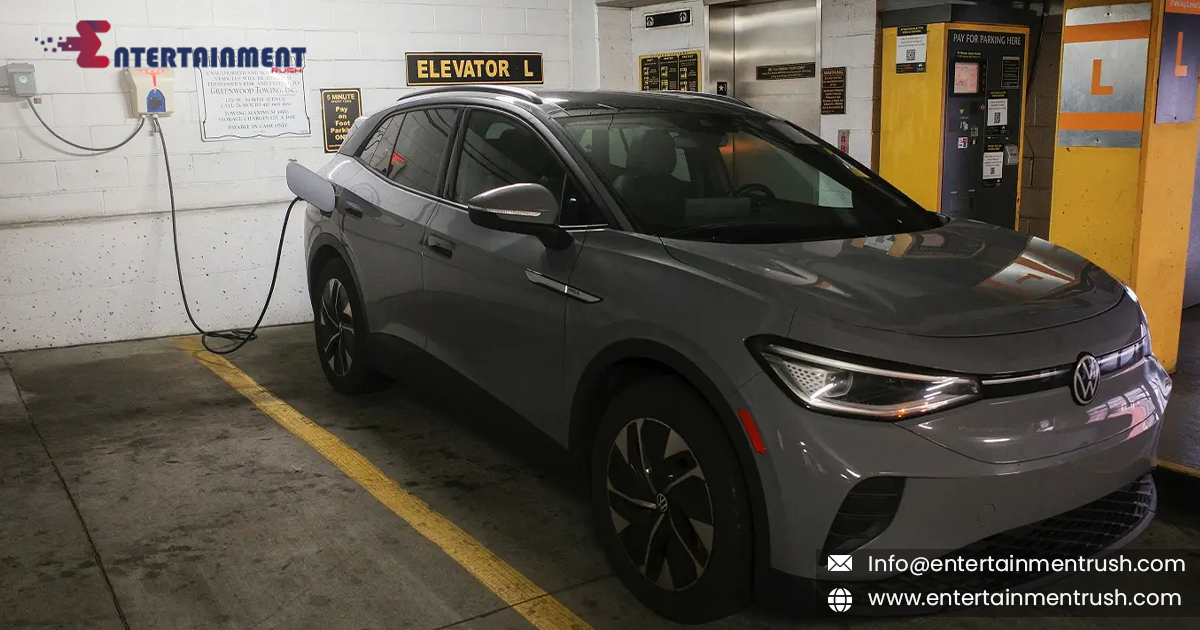The automotive industry has been undergoing a profound transformation, with electric vehicles (EVs) and self-driving technology at the forefront. As automakers ramp up investments in these cutting-edge innovations, government support remains a critical factor. During the Trump administration, the industry made a concerted effort to preserve federal EV tax credits and advocate for policies that accelerate the development and adoption of autonomous vehicles.
Federal EV tax credits have played a pivotal role in promoting the adoption of electric vehicles in the United States. Under current legislation, buyers of qualifying EVs can receive up to $7,500 in tax credits, significantly reducing the upfront cost of these vehicles. This incentive has been instrumental in making EVs more accessible to consumers and spurring innovation in the sector.
However, the tax credit framework includes a cap of 200,000 vehicles per manufacturer, after which the credit begins to phase out. Industry leaders like Tesla and General Motors, which have surpassed this cap, have been lobbying for an extension or modification of these limits. They argue that expanding the credit system is essential to maintaining the momentum of EV adoption, particularly as new entrants and traditional automakers introduce electric models to compete in a rapidly evolving market.
Without the extension of these credits, the cost barrier for EVs could hinder widespread adoption, slowing progress toward reducing emissions and achieving energy independence.
Autonomous vehicles represent the next frontier in automotive innovation, promising to revolutionize transportation by enhancing safety, reducing traffic congestion, and improving mobility for underserved populations. Recognizing this potential, automakers have called for a regulatory framework that supports the testing and deployment of self-driving technology.
During the Trump administration, automakers urged policymakers to streamline regulations and provide clear guidelines for the development and deployment of autonomous vehicles. The current patchwork of state-level regulations creates inconsistencies and complicates nationwide rollouts. Industry leaders emphasized the need for federal standards that prioritize safety while fostering innovation.
Moreover, automakers highlighted the importance of public investment in infrastructure to support autonomous vehicles, such as smart traffic systems and advanced mapping technologies. They also called for collaboration between government agencies and private companies to address ethical and legal challenges, including data privacy and liability issues.
The stakes for preserving EV tax credits and advancing self-driving technology are both economic and environmental. The automotive industry is a cornerstone of the U.S. economy, employing millions of workers and contributing significantly to GDP. Supporting these innovations can position the U.S. as a global leader in next-generation mobility, driving job creation and economic growth.
From an environmental perspective, EVs are crucial for reducing greenhouse gas emissions and combating climate change. Accelerating the shift from internal combustion engines to electric power is a vital step toward meeting international climate targets. Similarly, autonomous vehicles have the potential to optimize fuel efficiency and reduce emissions through smarter driving patterns and integrated transportation networks.
Despite the industry’s push, extending EV tax credits and creating a favorable regulatory environment for self-driving cars faced challenges during the Trump administration. Skepticism about climate policies and concerns about federal spending created resistance to expanding tax credits. Critics argued that the incentives disproportionately benefited higher-income households and questioned their long-term impact on consumer behavior.
Similarly, the debate over autonomous vehicles raised questions about safety, job displacement in driving-related industries, and cybersecurity risks. Policymakers were tasked with balancing innovation with public concerns, making the path forward uncertain.
The efforts by automakers to maintain EV tax credits and advance self-driving technology highlight the industry’s commitment to a more sustainable and innovative future. While the Trump administration’s response was mixed, the broader push underscores the importance of public-private collaboration in shaping the future of transportation.
As the automotive landscape continues to evolve, policies that support electric and autonomous vehicles will be critical for achieving economic growth, environmental sustainability, and technological leadership. Whether through tax incentives, regulatory reforms, or infrastructure investments, the partnership between industry and government will define the next era of mobility.
